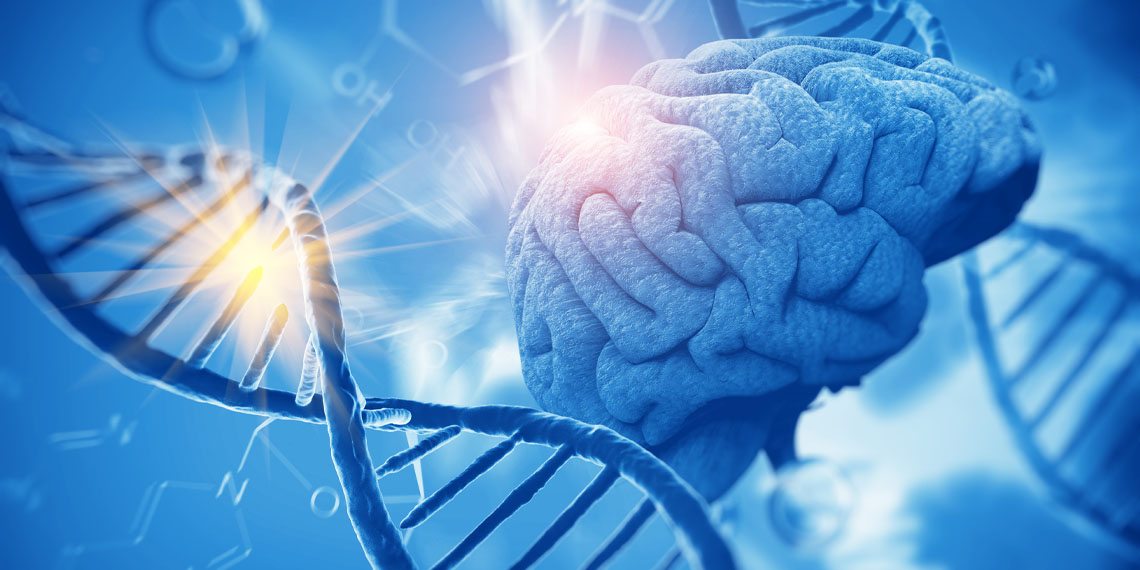
New research provides evidence that an individual’s health behaviors and outcomes are influenced by the genetic makeup of their romantic partner. The findings, published in Behavior Genetics, indicate that your partner’s genetic tendencies can lead to changes in your own weight, smoking habits, or alcohol consumption over time.
The researchers conducted this study to investigate how a person’s partner can affect their health. They aimed to explore the concept of social genetic effects, which refers to the impact of genetic factors in one person’s environment, such as their partner’s genotype, on their own phenotype (observable characteristics or traits).
“I was mainly interested in exploring the combination of social science and genetics,” explained study author Kasper Otten of Utrecht University. “It is evident that behavior is partly genetically influenced, but much of the social sciences does not deal with this biological fact.
“What is more, if you combine the evidence in the social sciences for social influence in behaviors among partners with the knowledge that behavior has a genetic component, you get to the interesting implication that one’s partner’s genes should also matter for one’s own behavior.”
To conduct the study, the researchers utilized longitudinal data from two large-scale studies: the Health and Retirement Study (HRS) in the United States and the English Longitudinal Study of Ageing (ELSA) in England. These studies followed a nationally representative sample of adults aged 50 and older every two years, collecting data on health behaviors and outcomes. The HRS sample collected data from 1992 to 2018, while the ELSA sample collected data from 2002 to 2019.
Importantly, if a participant had a romantic partner, their partner was also invited to take part. Both studies also collected DNA samples, allowing the researchers to examine the genetic profiles of the participants.
The researchers focused on three health outcomes: body mass index (BMI), smoking (cigarettes per day), and alcohol consumption (drinks per week). They used polygenic indexes (PGIs) to measure genetic propensity for these outcomes. PGIs aggregate many small genetic effects across the genome to predict an individual’s phenotype.
In the analysis for BMI, the researchers analyzed 59,325 observations from 9,522 individuals in 5,879 couples in the HRS, and 11,728 observations from 4,311 individuals in 2,729 couples in the ELSA. For drinks per week, they analyzed 52,023 observations from 9,140 individuals in 5,584 couples in the HRS, and 24,179 observations from 4,911 individuals in 3,264 couples in the ELSA. For smoking, they analyzed 60,029 observations from 9,546 individuals in 5,885 couples in the HRS, and 25,740 observations from 4,943 individuals in 3,311 couples in the ELSA.
The researchers found limited genetic similarity between partners for BMI, drinking, and smoking behaviors. But the researchers observed robust social genetic effects, indicating that an individual’s health behaviors and outcomes were influenced by their partner’s genotype. Specifically, individuals were more likely to have higher BMI, engage in more drinking, and smoke more if their partners had higher polygenic indexes associated with these behaviors.
In other words, if someone’s partner had genes associated with higher body weight, they were more likely to have a higher body mass index (BMI) themselves. Similarly, if their partner had genes linked to increased drinking or smoking, they were more likely to engage in those behaviors too.
These social genetic effects were not as strong as a person’s own genetic makeup, but they were comparable to the influence of education on health behaviors.
“It becomes apparent that genes not only act on individuals, but also on the people around us,” Otten told PsyPost. “This means your behavior is not only influenced by your own genes, but also by the genes of the people around you. Such social genetic effects are widely established in several animals, but evidence for humans has been limited so far.”
“We showed evidence for social genetic effects in health behaviors and outcomes – alcohol consumption, smoking, and body mass index – but in principle any behavior that is genetically influenced and subject to social influence can lead to social genetic effects.”
The findings highlight the importance of considering a partner’s genetic influence when studying health behaviors and the couple environment. Understanding social genetic effects can have implications for health interventions and prevention programs, as well as for identifying individuals who may be more susceptible to partner influence.
However, the study — like all research — had some limitations. The samples mainly consisted of older adults, and the findings may not fully generalize to younger populations. Additionally, the study included individuals of European descent only.
The study, “Partners in Health: Investigating Social Genetic Effects Among Married and Cohabiting Couples,” was authored by Kasper Otten and Jornt J Mandemakers.
"behavior" - Google News
July 22, 2023 at 10:07PM
https://ift.tt/kiwJD9x
Social genetic effects: Study suggests your romantic partner's DNA can influence your own health behaviors - PsyPost
"behavior" - Google News
https://ift.tt/HcyCnDJ
Bagikan Berita Ini














0 Response to "Social genetic effects: Study suggests your romantic partner's DNA can influence your own health behaviors - PsyPost"
Post a Comment